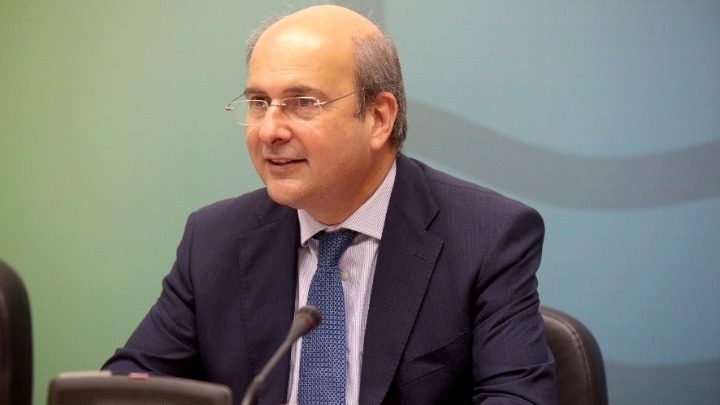Hatzidakis: Seven interventions to protect the Greek economy from international instability

Deputy Prime Minister Kostis Hatzidakis presented seven interventions to shield the economy from international instability, while speaking on Thursday evening at an event of the Hellenic-Italian Chamber of Commerce in Athens.
Following the announcement of the imposition of tariffs by President Trump, Hatzidakis stressed that despite the fact that only 5% of Greece's exports are directed to the US, it would be a mistake to consider that Greece is not affected.
"There are certainly secondary consequences in the European economy, and therefore in the Greek economy as well," he said. "A major global economic and trade war has begun. I want to hope that it will end as quickly as possible, but let us have no doubts. In economic wars there are no winners. There are only losers."
Hatzidakis underlined that both the European Union and Greece must be shielded with careful moves that strengthen their competitiveness, autonomy and resilience. "We must be more competitive. We must strengthen our autonomy in strategic sectors, such as energy, raw materials, in order to reduce our exposure to international economic shocks. And of course we must have the institutions and mechanisms to remain standing even in the most adverse conditions. To withstand crises, but also to exploit them," he pointed out.
More specifically, the seven interventions concern:
1. Attracting additional investments.
2. Supporting the real economy, through the regulations of the bill, which is being discussed in Parliament, to further strengthen the Capital Market, utilizing the NSRF and the Recovery Fund in combination with the Development Bank to enhance, in particular, the liquidity of small and medium-sized enterprises.
3. Increasing extroversion. The main goal is to penetrate two very large markets, which are India and China, with simplification and further digitalization of customs procedures and incentives for exports.
4. Upgrading infrastructure. In addition to the energy infrastructure, which allowed Greece to become a net energy exporter after many years in 2024, critical projects are progressing, such as: the expansion of the Thessaloniki Metro, the construction of the new international airport in Kasteli, Heraklion, the development of regional ports, the promotion of the fibre optic network.
5. Expanding the productive base of the Greek economy.
6. Human resources. The changes are also reflected in the reduction in unemployment, which has fallen to 8.6%.
7. Fiscal policy and taxation.
Απαγορεύεται η αναπαραγωγή από επισκέπτες της ιστοσελίδας.